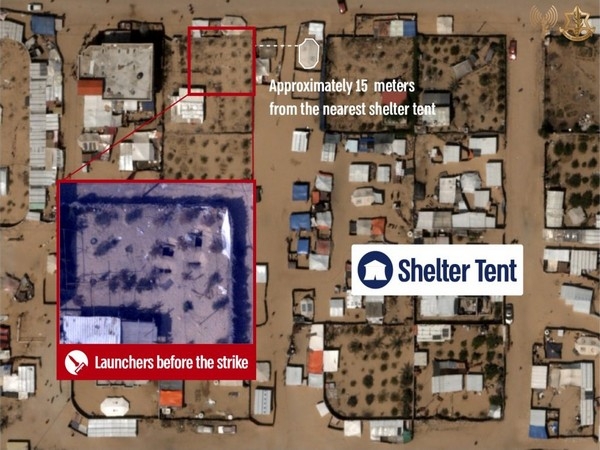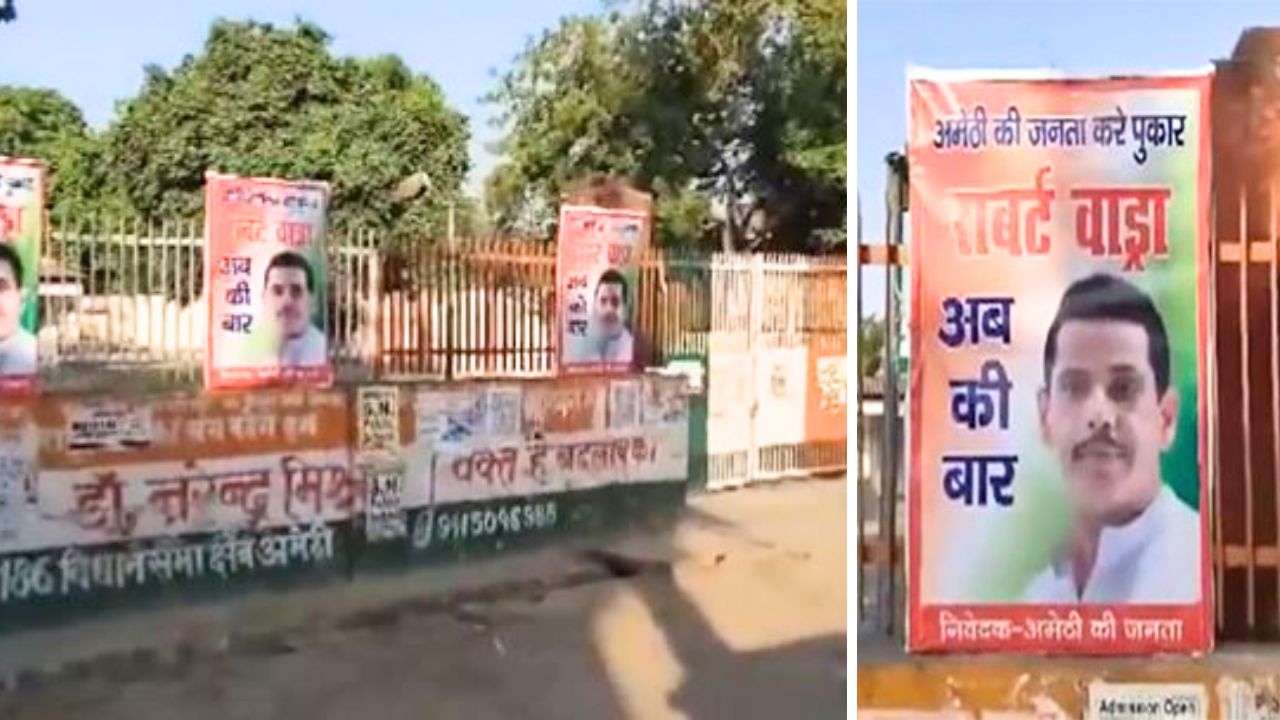Mahagun incident results in loss of livelihood, divisions between slum dwellers

Four policemen sit outside Noida housing society Mahagun Moderne sipping on their afternoon chai, looking across at the green fields skirting the opposite side of the road. A few days ago, the fields were barely visible, as this stretch was dotted with 35-40 shanties selling everything from detergents to vegetables.
The shanties were run by settlers from nearby areas – some as close as Ghaziabad. But now, after having seen their shops razed, some shell-shocked shopkeepers sit under makeshift structures built from the remains of the structures they once inhabited.
Looking out at the police, one man curses. “It's all their fault, they needed to appease the Mahagun Moderne residents, so they arranged for our shops to be destroyed.”
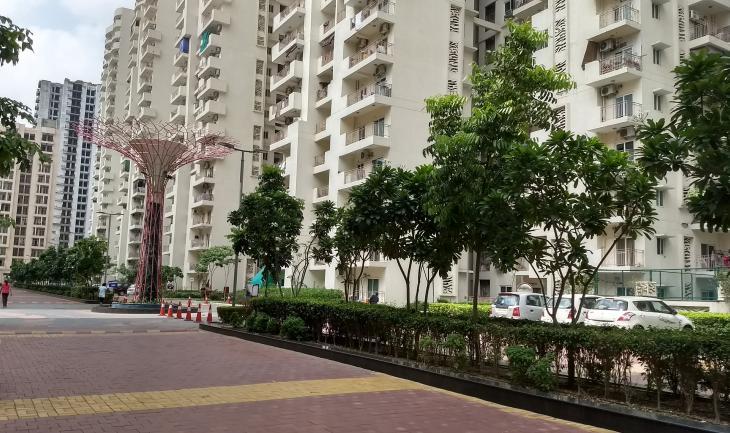
Any poor will do?
The angry fruit vendor swats flies away from his baby's face. The baby laughs benignly. “As long as she gets milk,” he says, motioning to the child's mother, “she is unaffected by it all.”
“She's not unaffected, how's she unaffected,” snaps an older woman seated beside the child. “We had just laid out the produce, fresh fruits and vegetables, and they just flipped out tables,” she says, re-enacting how their shop was broken down. “It was raining, the children even got wet in the rain.”
Shahana Bibi claims to have lost Rs 1.5 Lac in the destruction. “We have nothing to do with the Mahagun Moderne case, and I feel like I'm saying this for the hundredth time,” she says.

“The Bengalis broke into Mahagun that morning and they're getting away with it. Only because [of them] our shops have been broken. How's this justice?”
Kanti, another woman sitting beside the family, explains, “That's Sector 78. Across the road. Here, we're in Sector 77. And this area you see beyond the fields, that's Sector 76.
“The area isn't the same, the people aren't the same either. The maids who work in Mahagun live in a different slum, while we live here. They're Bengalis, most of us are not. But nobody is listening...”
Just then, a young man on his bicycle stops a short distance away from the broken shanties. “Bengali hai, maaro saale ko,” screamed the fruit-seller, calling out to the nearby cobbler. “Don't let him come near us, hit him if he does!” (He's Bengali, hit him!)
The women yell at him, telling him to go away and never dare to return.
The lines have been drawn, and it's not a communal conflict. Kanti and Shahana, women from different religions, shout at this man in unison, upset and desperate all at once.
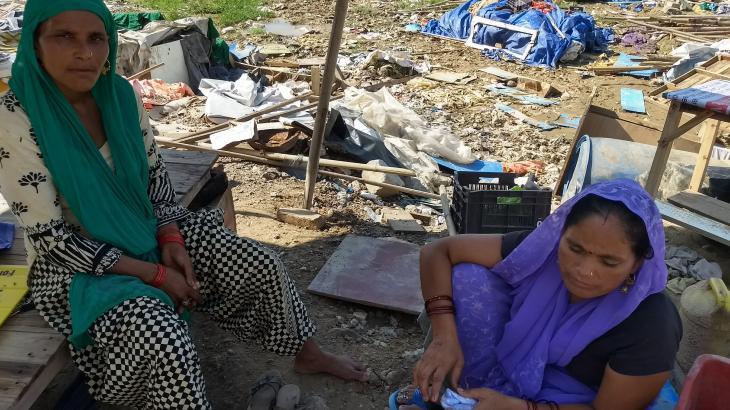
We don't hate him or the Bengalis, they tell me later. In fact, there are two to three shops owned by Bengalis in their area as well.
The poor have never fought here before. However, they cannot bear that they must suffer because the rich think all poor are the same people.
Appeasing the rich
“For the authorities there it's just a simple solution,” says Kanti. “They don't care who the poor are, as long as some poor are affected.”
But she may be incorrect in her assessment, for the only shanties razed in the area are the ones directly facing Mahagun, those hidden behind other high-rises in the vicinity have been spared.
This, of course, cannot be a coincidence.
Noida Sector 49 SHO Parshuram claims that there has been no razing in connection with the Mahagun Moderne case. “It was just illegal shanties that have been broken. None of the slums have been touched,” he tells Catch.
Sector 49 police station is where the four FIRs in connection with the case have been registered. Claiming that, barring the 13 arrests that have already been carried out by the police, the case has died down, he says, “There were 82 domestic help who were banned from entering the society. Now, over 55 of them can enter because the house-owners needs help.”
“Give it a few weeks, all will be allowed in. The employers just have to claim that their help was working at the time the vandalising happened, and they certainly will,” he says matter-of-factly.
He doesn't think it odd that just a word from Mahagun residents is enough to decide the fate of the domestic workers, be it in their favour, or otherwise. One of the four FIRs lodged in the case happens to be against Anshu Sethi, the employer at whose house Zohra Bibi worked.
While 13 people from the slums have been arrested, with police on the lookout for Zohra's husband Abdul Sattar, Noida SP Arun Kumar coolly dismisses the fourth FIR.
“Uss ilzham mein dum nahi hai,” he had told Catch a few days ago. (There's no merit in that allegation.)
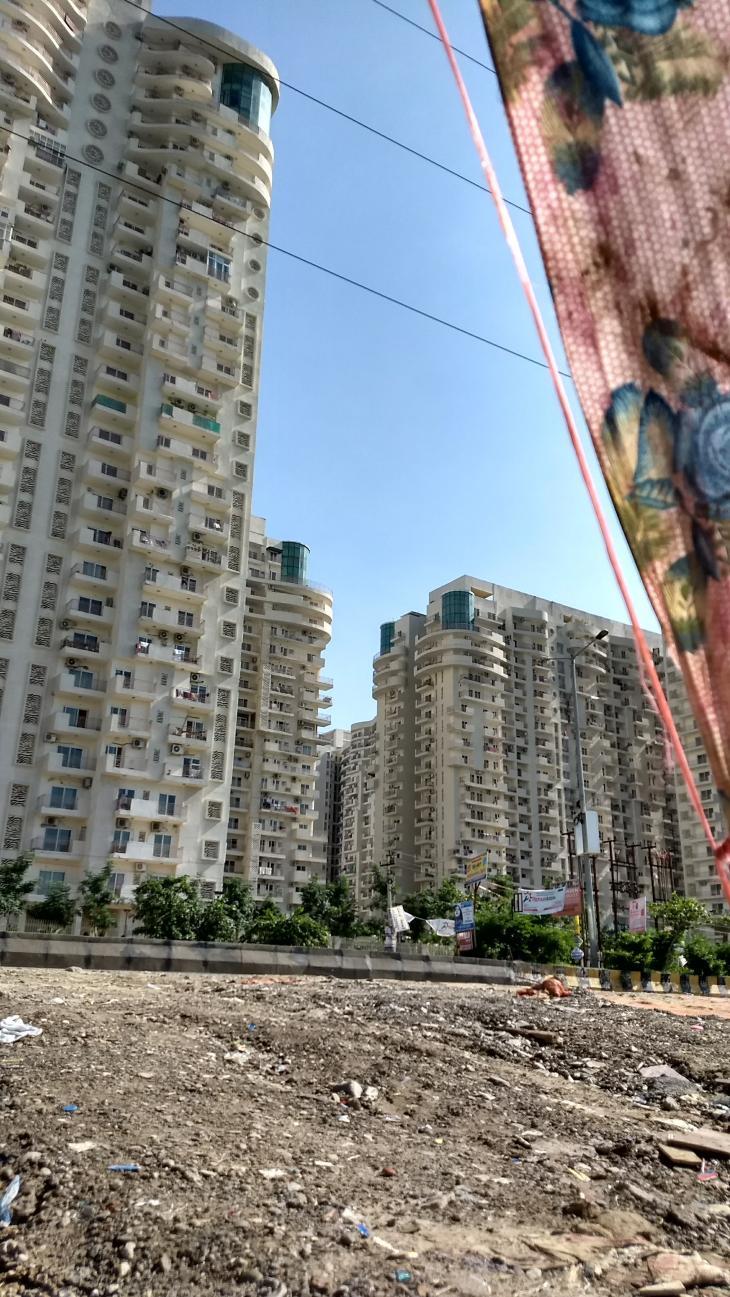
UP police stationed outside Mahagun, however, innocently spill the beans on the matter. Ten of them have been deployed to “maintain peace in the area”. Asked about the broken shanties across the road, one of them quips, “Don't you know, madam? That domestic worker case? Noida authorities broke it after that.”
On learning that I wasn't a Mahagun resident, they relax. “These people are very rich, almost too rich,” Abhishek* (name changed), one of the deployed policemen, says.
“They can't live without domestic help, as both husband and wife are working. I think they can live without each other, but not the help. Besides, the maid is often a mother to the child. So they'll take them back.”
But what about those 13 arrested, and the many more who were picked up and questioned overnight, I ask.
“This is what happens when you're up against the rich,” another policeman says. “It's sad, but they shouldn't have broken in.”
Collateral damage
That the unsuspecting vegetable vendors and others have been collateral damage is rather apparent. But what's less apparent is the toxic 'us vs them' mentality that has resulted in the loss of livelihood for people, who ironically, earned a living selling their wares to Mahagun residents.
“Madams would come and they couldn't dirty their feet, so we put these out,” Kanti says, pointing towards carpets covered in muck, torn and thrown about. Once, these rather literal red carpets, were rolled up carefully every evening and tucked into a safe corner in the shops, before the blinds were pulled, and the shopkeepers who live there went to bed.
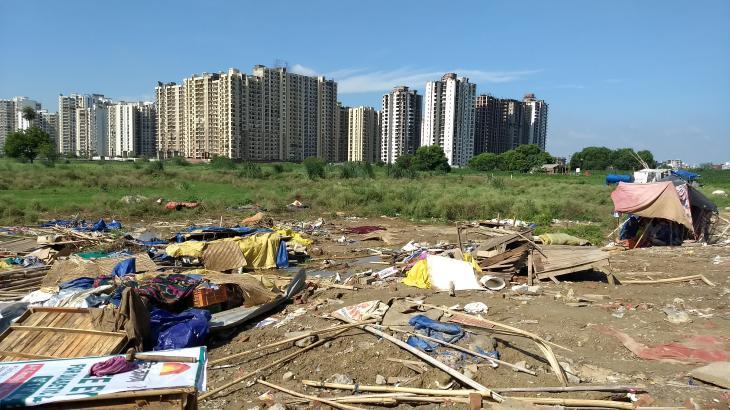
Over the past weekend, some of the shops have re-emerged, with the support from local social workers. However, rains continue to keep most away.
According to social worker Ankit Jha, who has been working closely with the Sector 77 shopkeepers, the razing was entirely illegal. Citing the 2013 Supreme Court order on the issue of hawkers, according to which all existing hawkers are allowed to work unless a special panel marks out hawking zones, Jha tells Catch, “I have handed each one of them a copy of this ruling.
“Noida authorities have been harassing them, repeatedly returning to break whatever shops they manage to erect. It's not Noida Development Authority land, it's private property belonging to a farmer named Sachin Yadav, who collects rent for the shops. So this move is completely wrong.
“Some of these representatives have even mistreated the women there. I've told them to challenge the authorities if they show up again.”
But the solution is even more temporary than the shops that they've managed to piece together, for there are larger problems looming.
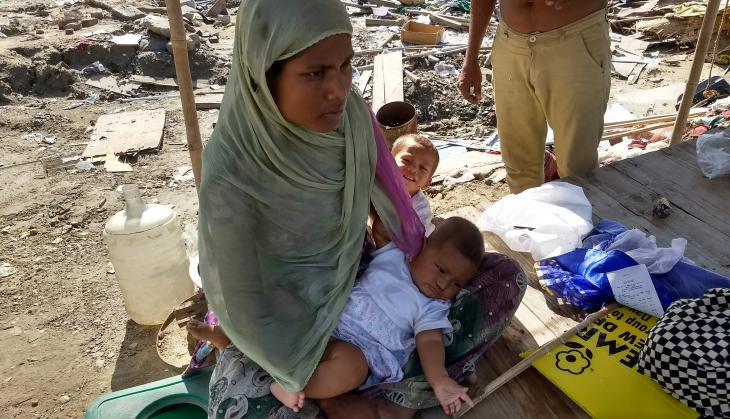
With the greenery behind them, an ironic backdrop, it becomes easier for mosquitoes and other diseases to thrive. Little pools of rain water have already collected beside the remains of their shops, with some of the shops products floating in them.
The baby feeds, dangerously close to the muck and flies. Her mother looks quietly into the distance, not once joining the heated discussion around her. Her immediate concerns are different from theirs.
An aerial view of Mahagun today would show the true nature of power, and with whom it lies. On one hand, there would be luxurious imposing structures, proudly looking down at the flattened out shops – a metaphor for the resistance they've thwarted. On the other hand, there are the poor, looking up at the complete injustice they've been served, all because of a select few who wanted to make a point.
First published: 24 July 2017, 22:19 IST
_71394_190x110.jpg)







![BJP's Kapil Mishra recreates Shankar Mahadevan’s ‘Breathless’ song to highlight Delhi pollution [WATCH] BJP's Kapil Mishra recreates Shankar Mahadevan’s ‘Breathless’ song to highlight Delhi pollution [WATCH]](http://images.catchnews.com/upload/2022/11/03/kapil-mishra_240884_300x172.png)

![Anupam Kher shares pictures of his toned body on 67th birthday [MUST SEE] Anupam Kher shares pictures of his toned body on 67th birthday [MUST SEE]](http://images.catchnews.com/upload/2022/03/07/Anupam_kher_231145_300x172.jpg)


_251371_1280x720.jpg)
